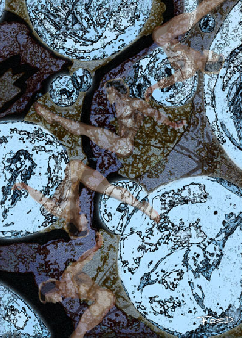11) A gramaticalização do item “já”: um retrato das suas funções em cartas baianas
Resumen
Inglês: The grammaticalization of the item “já”: a portrayal of its functions in letters written in BahiaLinguistics investigations about the item “já” in Brazilian Portuguese have revealed that besides the prototypical function of temporal adverb (as usually suggested by normative grammars), it is also used in new functions , for example, as an argumentative operator. Based on letters from Bahia between 1902 to 1962, and 1980 to 1993, we analyzed whether the functions of “já” are configured as a phenomenon of grammaticalization or not. This can be understood as a special type of change and is defined as a process by which lexical items or constructions, in certain contexts, assume grammatical functions and, once gramaticalized, continue to develop new grammatical functions (HOPPER and TRAUGOTT, 2003). In fact, research results reveal that the item "já" takes innovative functions, even in the first period and in the second one, and it indicates that the change involving the "já" is not a recent phenomenon in Brazilian Portuguese.
Keywords: adverb "já”; uses; grammaticalization.
Tradução: Investigações linguísticas realizadas acerca do item “já” têm revelado que, além da função prototípica de advérbio temporal (como preconizam, normalmente, as gramáticas normativas), ele também é usado com novas funções, como, por exemplo,a de operador argumentativo. No intuito de verificar esse comportamento, analisamos, a partir de cartas baianas dos períodos de 1902 a 1962 e de 1980 a 1993, se as funções do “já” se configuram como um fenômeno de gramaticalização. Os resultados da investigação revelam que o item “já” assume funções inovadoras, tanto no primeiro como no segundo período, indicando que a mudança envolvendo o “já” não é um fato recente na língua portuguesa.
Palavras-chave: advérbio já; usos; gramaticalização.
Descargas
Los datos de descargas todavía no están disponibles.

